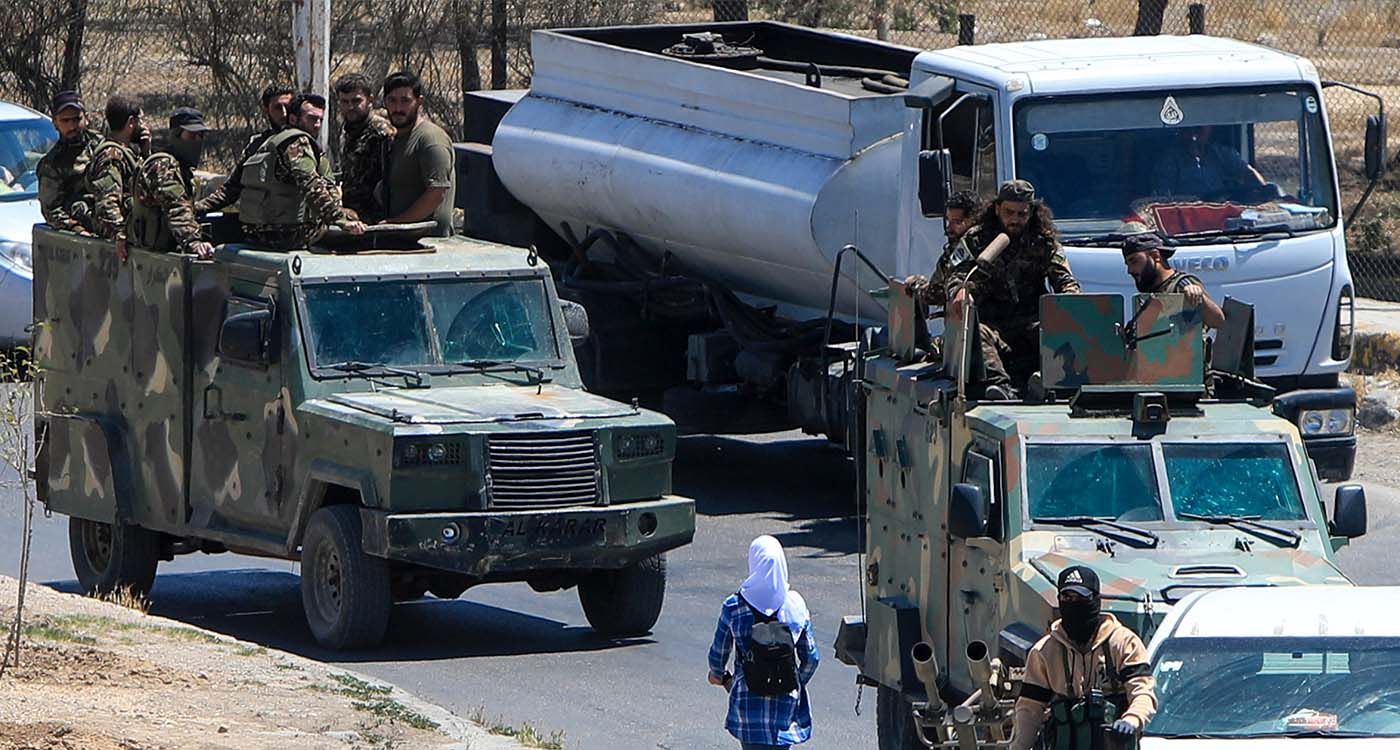- Home
- Middle East
- Syria: Ethno-National Imbroglios and State Formation

©Bakr ALKASEM / AFP
The recent clashes between the Syrian Druze community and the newly formed government in Damascus betray the inconsistencies of the current transition in Syria and its pitfalls. However positive the ongoing political evolutions in Syria are, they are still thwarted by major ideological and strategic hurdles that have prevented the actual government from honoring its proclaimed promises of inclusiveness, civil peace and smooth transition.
The deradicalization program enunciated by the current power incumbents is still marred by manifold obstacles: the inability of the reformist wing to convince or to force its choices on the recalcitrant groups that are unwilling to renounce their jihadist worldview; the brunt of regional and Muslim power politics and their imprints on the internal political dynamics still swaying the process of governance; the shortcomings of constitutional statehood, quite obvious despite the political evolutions pointing in this direction; a political culture still unable to internalize the predicates of pluralism and its management as part of the institutional engineering choices; Islam, Pan-Arabism, Islamism and contemporary authoritarianism being inherently inimical to the idea of democratization and liberalization as part of the political worldviews and mundane politics; the bloody legacy of the Alawite and Baathist dictatorship leaving no room for political accommodation.
The swift downfall of the Assad regime is attributed to a long-haul exhaustion process and the failure of the post-war interlude to usher in an era of transitional justice based on the notions of reconciliation politics, legal and moral accountability, and moral atonement. Unfortunately, these fundamentals are not part of the normative and political repertoire of tribal societies and remain impervious to various sorts of diplomatic mediation. The only option left is the deeply entrenched notion of power politics shorn of any moral and legal framing.
The proclamations of the new government in Damascus were undermined by counter-proclamations and political criminality, which targeted ethno-national groups, and by its inability to embrace pluralism as a political predicate. The challenges of Islamic radicalism and retributive politics are putting at stake the enunciated democratic course. The violent bouts and their iterations are no accident; they betray the worldview and the deep-seated culture of revenge prevalent in highly segmented tribal societies. The relatively peaceful downfall of the Assad regime was not associated with carefully negotiated transitional.
The incoming Islamist group started acting on the very basis of an originating legitimacy, which nobody conceded despite all declared intentions. It is assumed that other groups are automatically engaging the new dynamic and validating its central role in the presumed reconstruction era. The civil war in Syria and its overlapping wars are no coincidence; they have unveiled the well-embedded fractures of national and political formations in Syria and all along the Middle East.
The original sin lies in the incapacity to build national and political formations based on social contracts, institutional constructivism and constitutional patriotism. What held these political epicenters were asymmetric power relationships, hidden and obtrusive violence, and shifting regional political equilibriums. The rush into institution building in the absence of carefully negotiated political agreements among the various ethno-national groups is compromising the whole transition process and the viability of civil concord, barely tested after the repeated episodes of violence targeting ethno-national groups.
Aside from the political sociology of Syria, the geostrategic considerations are decisive whenever it comes to understanding the emerging political dynamics and the interlocking conflicts coming at their heels. The first striking feature is the challenge posed to the geopolitical order by these ethno-national groups and their reluctance to join back the political equations that have vanished. The case of the Kurds in Iraq, Syria and Turkey, and that of the Druze in Syria, are cases in point. The regional power players epitomized by Turkey, Iran and Israel are poised to adjudicate these conflict dynamics and deal with their rising actors.
The destruction of the Iranian geostrategic platforms leaves Syria, Iraq and Lebanon at the crossroads between the need to restabilize themselves on a consensual basis and reposition themselves on the basis of new strategic alliances to reshuffle the regional political order and engage Israel and Turkey on conclusive peace agreements and strategic understandings. Otherwise, the realm of chaos is going to expand in a region that has not yet found its geopolitical anchors and normative center of gravity. The absence of a political and moral compass is by far the most critical factor if we are to understand these imbroglios and their subtexts.
The clashes that took place between Israel and Turkey lately have set the demarcation lines between the two power brokers and defined the contours of the political game and its national security coordinates. The Syrian government is bound to change its political script if it were to stabilize Syria, delineate and secure its national borders, and reengage the international and regional communities. There are no chances for geostrategic stabilization unless the older narratives are discarded, and the pending controversial issues are negotiated on the basis of mutual acknowledgement and moral reciprocity.
Read more




Comments